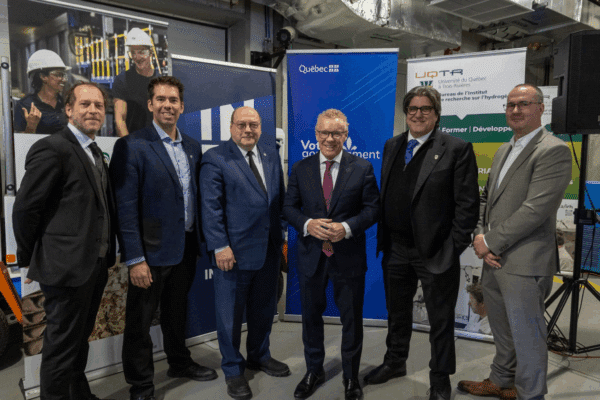- Research
-
YOU ARE
- Community member
- Future Student
- Student
- Professor
- Alumni
- Media
- Guidance counsellors
- INRS retiree
- Contact Us
- Newsroom
- Careers
- FR
-
Studies
We teach the next generation of researchers to develop scientific, social, and technological innovations.
-
Research
We find solutions through interdisciplinary research and industry or public and community partnerships.
-
INRS
We play an active role in Québec's economic, social, and cultural development.
Are some populations more exposed to urban pollutants or less able to access the positive aspects of urban living? As chairholder of a new Research Chair of Canada, Professor Philippe Apparicio of INRS’s Urbanisation Culture Societé Research Centre will be pushing ahead with his research on environmental equity in urban settings.
He will explore interrelationships between personal mobility practices, exposure to multiple pollutants (air and noise in particular), and access to vegetation, urban parks, and urban resources—a first in the field of environmental equity.

In the coming years, Professor Apparicio and his team will develop precise indicators of the concentration and spatial distribution of air pollution, road noise, and vegetation as well as the proximity of community services and facilities. They will also analyze relationships between these indicators in Canadian cities. The researchers will innovate by evaluating residents’ actual exposure to these negative and positive elements and carrying out a multitude of analyses of mobility practices using the highly advanced technology in the environmental equity lab.
The Chair’s work will also involve measuring combined exposure to pollutants as well as the combined benefits and drawbacks of life in an urban setting, especially for economically and physiologically vulnerable groups such as underprivileged families, ethnocultural minorities, children, and the elderly.
The research carried out by Professor Apparicio and his team will help document the impact of urban pollutants on the wellbeing and quality of life of urban populations. They’ll provide urban-planning decision makers with insights to improve environmental justice in urban settings.
“The Canada Research Chair in environmental equity and urban settings is also a high-tech training centre for students in the social sciences and urban studies. They’ll acquire real-time data collection skills for studying pollutant exposure and become well versed in complex software used in diagnosing environmental equity issues.”
Professor Apparicio
Chairholder bio
Known as a leader in the field of geographic information systems and spatial analysis, Professor Philippe Apparicio joined Centre on Urbanization, Culture, and Society in 2003 and co-founded Spatial Analysis and Regional Economics Laboratory the following year. He also runs the Équité en milieu urbain Laboratory, a unique scientific facility financed by the Canada Foundation for Innovation. A prolific author and sought-after lecturer, Professor Apparicio has handled a number of research mandates for organizations such as Emploi-Québec, Infrastructure Canada, Héma-Québec and City of Québec.
You may also like


February 16, 2016
Energy transition: A new research platform drives INRS and its partnersShare

